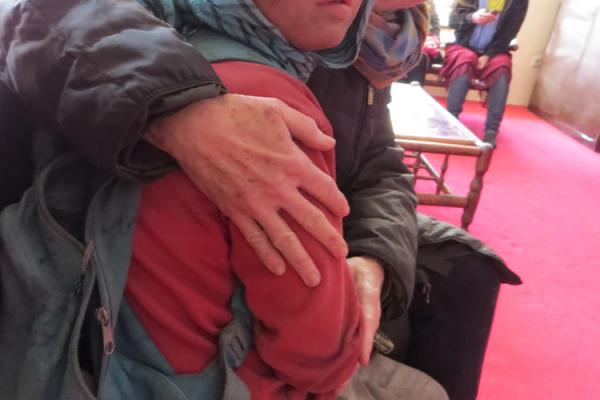Kabul, Afghanistan, is “home” to hundreds of thousands of children who have no home. Many of them live in squalid refugee camps with families that have been displaced by violence and war. Bereft of any income in a city already burdened by high rates of unemployment, families struggle to survive without adequate shelter, clothing, food, or fuel. Winter is especially hard for refugee families. Survival sometimes means sending their children to work on the streets, as vendors, where they often become vulnerable to well-organized gangs that lure them into drug and other criminal rings.
Last year, the Afghan Peace Volunteers (APV), young Afghans who host me and other internationals when we visit Kabul, began a program to help street children enroll in schools. The volunteers befriend small groups of children, get to know the children’s families and circumstances, and then reach agreements with the families that if the children are allowed to attend school and reduce their working hours on the streets, the APVs will compensate the families, supplying them with oil and rice. Next, the APVs buy warm clothes for each child and invite them to attend regular classes at the APV home to learn the alphabet and math.
Yesterday, Abdulhai and Hakim met a young boy, Safar, age 13, who was working as a boot polisher on a street near the APV home. Abdulhai asked to shake Safar’s hand, but the child refused. Understandably, Safar may have feared Abdulhai. But when Abdulhai and Hakim told Safar there were foreigners at the APV office who were keen to help, he followed them into our yard.
Read the Full Article

